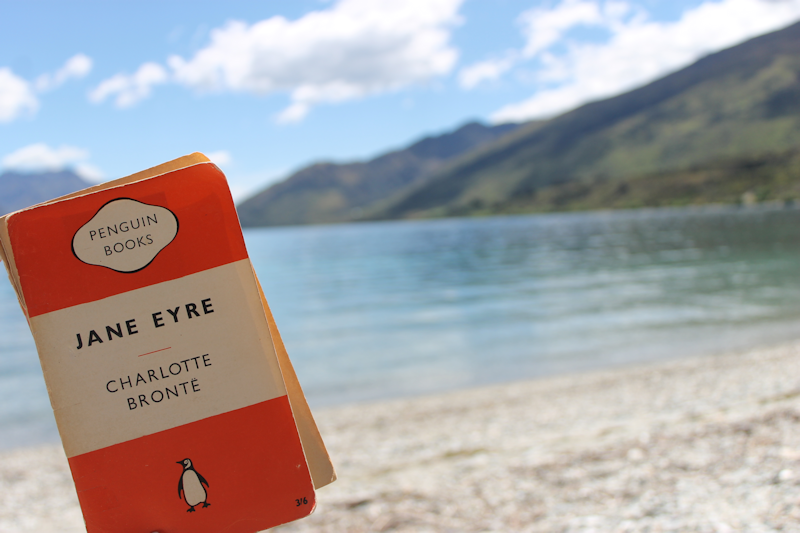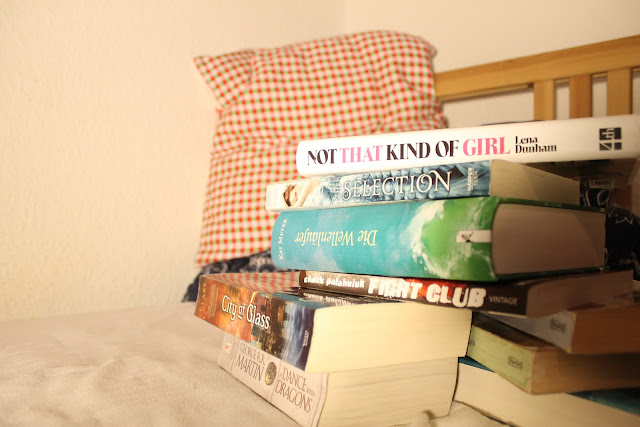The quotation that is serving me as a title for this review is the most accurate way to describe the novel Filth by Irvine Welsh by not describing anything at all that is even remotly related to anything happening in the book. Sounds like mystery to you? Let's help you out with the
song the qutoe/chapter name/blog title is based on. While listening to it imagine a person that you'd totally see liking this song and relating to it. Now take the complete opposite to this person and you'll have the protagonist of this masterpiece of a novel:
Bruce Robertson who can be described best by the insult that gives the book its name: FILTH
So if you haven't heard of the book before you know now that
Bruce doesn't enjoy cheesy love songs. Well, let me tell you: this is definitely one of his lighter crimes.

On the back of the book you get warned about various topics in the book including drugs, perversion, sexism and racism. Still nothing will prepare you for what you'll experience by following every step of
Bruce Robertson's miserable existence during the certain december/january the book takes place. And for me at least, these almost 400 pages of a novel were probably one of the finest piece of literature I've EVER read.
So what's the deal with this book? It basically presents complete insight into the mind of
Bruce Robertson who works for the Edinburgh police (or let's put it in the right Irvine-Welsh-tone: polis) and who would not only do anything for a promotion (including: scheming, spreading rumours about co-worker's sexuality and intimidating fellow contestants) but also seems to thrieve on being the most sexist, racist, self-involved bastard Edinburgh and/or entire Scottland has ever seen. In his spare time, he's either telling himself that it's only a matter of time for his apparently absent wife to come around begging him to take her back or feeling superior to every other human being that gets in his way. So while his primary mission in the book is to investigate in a murder's case, you'll find him using every opportunity to either get carried away by using drugs, sleeping around with a various amount of woman/hookers or taking adventage of him being in law enforcement (convincing an under-aged girl to give him a blow job for not getting arrested is only example).
That description might evoke the question how such a person could by any chance be someone you would actually like to read about. Well, let me tell you, that you not only are going to like seeing the world through his eyes, it's also probable that you'll root for him to get the promotion, all the girls and away with all his crimes. The narrative form of the book that mirrors all of Bruce's thoughts and reasoning just demands you to take his assumptions and values for given and for the time reading about him identifying with him in some way. This is what makes this journey so unique but also lets room for questions: how can you as a decent human being find it so easy to dive into the mind of such a sociopath? Why might you even try to find excuses for what he does (e.g. his past, him missing his wife + kid, ...)? Why do you feel bad for him when in the second half of the book things begin to go down for him?

I cannot answer these questions for you (although I do have some theories) but that might not be the point of it anyway. You know how you walk through life getting to know strange people that act in unacceptable ways? Reading this book reminded me so much of how we don't get to take a trip into the minds of other people in real life, so we can never know what it's really like to be another person with different memories and different goals in life. And just like
Bruce's colleagues and other acquaintances are unlikely to see him for the person he truely is we also might live next door to someone just like him, we're just not aware of it.
What the book is also great on is creating atmosphere. The story takes place in Edinburgh most of the time which is very richly presented by the Scottish and slangish expressions in which Bruce and a lot of other characters talk and think. We're also in for a little throwback to the 1990s where Phil Collin's albums are something to discuss during lunch break and "remember when I fucked that cunt the day of Princess Diana's funreal?" are somewhat current walks down memory lane.
Although I've spent most of this review discussing more content related issues what also stands out in this book are the ways Irivine Welsh tells the story with both having parts told by what might or might not be Bruce's wife (so the unreliableness of this narratorship becomes apparent very early on in the story) and by another creature that seems to have full insight on his backstory (not going to spoil the source right here for you guys). The latter is constantly overlapping Bruce's own storytelling which becomes vivid when parts of the text are
literally overlapping the original text (just look at the picture, how awesome is this?!). This device is even more used toward the end of the book when
Bruce's mental condition gets more and more problematic.
I feel like I am giving away lots of details about how the story evolves which could spoil your own non-biased perception and interpretation of the book. On the other hand, I can hardly say that I started reading the book unbiased myself. I happened to pick up the book right after watching the movie adaption directed by John S. Baird and starring James McAvoy (!) in the lead role. The movie introduced me to the story and left a gigantic impression on me: the psychological developement of
Bruce seemed to be so bravely portrayed and well executed. And although I still love the movie and have to get my hands on a copy of the dvd which will be released this month actually (yay!) I cannot strech enough how even more shocked, amazed, speechless and involved in the character
Bruce Robertson I was while and after reading the novel. Irvine Welsh does such an amazing job at making you feel something. Don't get me wrong: most of the time it is disgust, anger, shock, bewilderment and these kinds of things. But it is also despair, pitty, sometimes even relieve that you weren't exposed to all the bitter things that happened in
Bruce's life. There is a love story hidden under all those layers, too and you clearly see his need for compassion and sympathy although he carefully covers this with his infuriating attempts at making other people's life miserable.
So long story short: psychologically rich character insight, quite unique storytelling devices and the mixture of Scottish/British pop culture references & the dirty/slangish/Scottish language made reading this novel the most oustanding experience I ever had reading a book. Though I am not really the kind of person to claim one true favorit book of all time, if I had to chose it'd probably be my pick.
My current life goals now do include: reading Trainspotting (Welsh's most famous novel which I already got myself) + other Irvine Welsh books, moving to Scotland/Edinburgh at some point in my life and hoping that my high hopes for upcoming James McAvoy roles won't be disappointed after seeing how AMAZING he did as
Bruce who happens to be one of the most consequently and thoughtfully built characters I've ever come across.
enjoy reading & love hemmingway!






























